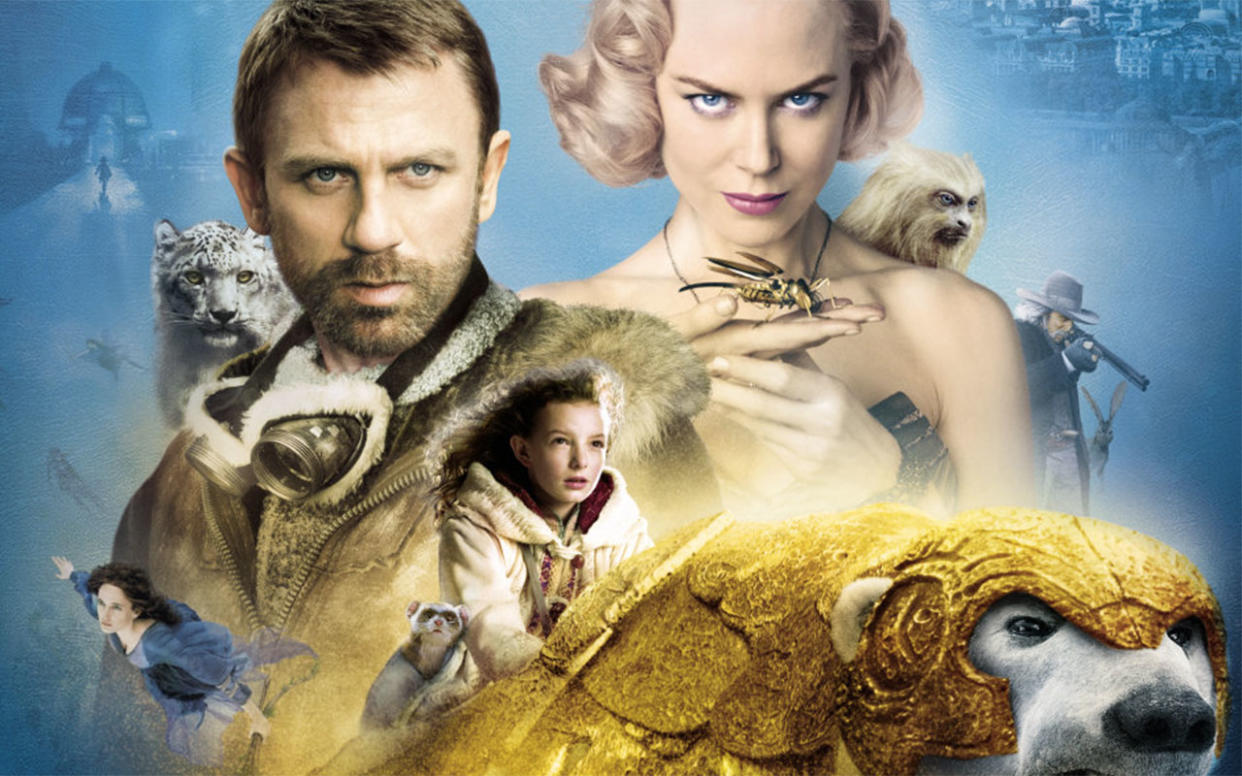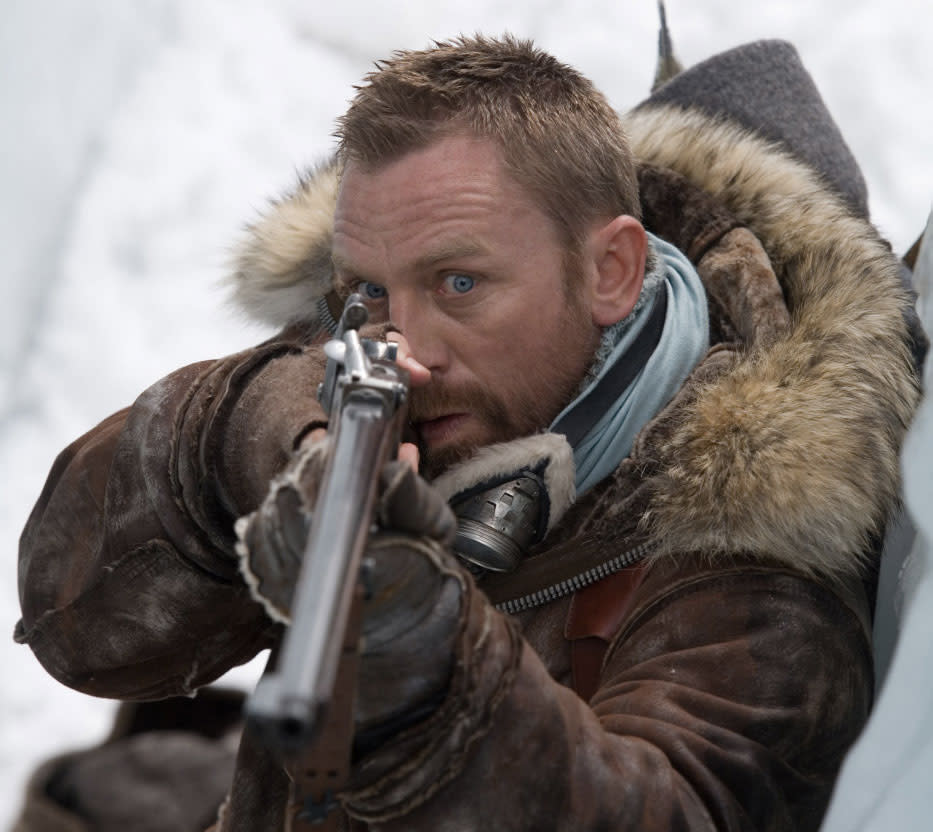What went wrong with The Golden Compass?

As ‘His Dark Materials’ author Philip Pullman announces a new trilogy set in the world of Lyra Belaqua, The Magisterium and souls that look like cuddly animals, we take a look back at the failed 2007 attempt to bring the fantasy saga to the big screen.
What’s a studio to do when it has just stormed the global box office to the tune of nearly $3bn by adapting one of the most famous fantasy sagas of all time, JRR Tolkien’s sprawling ‘The Lord of the Rings’, and there is no obvious followup? In the case of Warner Bros offshoot New Line in 2007, it seemed eminently sensible to plunge straight into another much-loved series of novels, acclaimed British author Philip Pullman’s ‘His Dark Materials’ series.

At the time, the screen rights to ‘The Hobbit’, which would later become stretched, wrenched and squeezed into Peter Jackson’s second bash at a big screen Tolkien trilogy, were still in dispute during rights holder MGM’s infamous mid-noughties crisis. But here was a saga of spectacular scope and ambition, a tale tackling all the big subjects, from the hegemony of organised religion to the treachery of adults and the sweet seduction of sin itself, while also throwing in lionhearted talking polar bears, evil golden monkeys and a wonderfully steampunky vision of alternative England where magic still rules. New Line would adapt Pullman’s first book ‘Northern Lights’ into a film titled ‘The Golden Compass’, after the ornate clockwork contraption upon which it centres, and put the final two novels into production provided it made money.
The biggest flops of summer 2016
The worst movies to watch on a plane
The horrible true story of The Conqueror
The movie was handed a staggering $180m budget – the studio’s biggest ever – and Oscar-winner Nicole Kidman was cast as the scheming Mrs Coulter. Daniel Craig, the future James Bond, signed on to play the enigmatic Lord Asriel, and unknown 12-year-old Dakota Blue Richards agreed to play main character Lyra Belaqua, the Oxford orphan who finds herself on a Blakean odyssey through a sublime world of swooping witches, brave Gyptians and cruel clerics. After at one point walking away from the project for fear he did not have the experience to pull off Jackson-style feats of CGI genius, ‘About a Boy’s Chris Weitz agreed to return as director and main screenwriter. And that’s where it all began to go wrong.
From the very start, it appears New Line was determined to present ‘The Golden Compass’ as an unwieldy continuation of its ‘Lord of the Rings’ triumph. In the film’s debut teaser trailer (above), the one ring of Sauron even morphs into the alethiometer (golden compass) used by Lyra to plot her next move, while voiceovers in later efforts suggested that the evil Magisterium is out to recover the machine – a theme that was never so explicit in the book.
Not content with enveloping Pullman’s very different saga in a mist of Tolkienisms, New Line parachuted in ‘Lord of the Rings’ Christopher Lee for a minor role as a Magisterium official, and upset Weitz by ditching young British actor Nonso Anozie (later to find fame in ‘Game of Thrones’) as the voice of ice bear Iorek Byrnison in favour of Ian McKellen, aka Gandalf.

The studio also ordered opening scenes marked by voiceover scenes heavy on exposition – in complete contest with the book’s softly softly approach to revelations about the Magisterium, the child-catching gobblers and the sinful, magical phenomenon known as dust – with French actor Eva Green (Serafina Pekkala) doing a passable imitation of Cate Blanchett’s Galadriel at the beginning of ‘The Lord of the Rings: The Fellowship of the Ring’. Last but certainly not least, producers engineered a cut in which the final three chapters of ‘Northern Lights’ were completely lopped off, ostensibly to be retooled into the opening of followup ‘The Subtle Knife’ – except that movie was never made.

This move seems to have been made to ensure a more obvious, Hollywood-style happy ending. In the book, Lyra finally catches up with Lord Asriel, who has been revealed as her true father (Coulter is the mother), only for him to betray her by cutting poor urchin Roger’s daemon (the visible personification of his soul) from his body, killing him. This opens a window to a parallel world, through which Lyra travels to meet Will, the series’ other main protagonist.
But the film version ends with Lyra and Roger travelling north in search of Asriel after a climactic battle against Tatar mercenaries employed by the evil Gobblers, the hopeful (almost jubilant) tone almost completely undercutting the sense of outrage at the impenetrability of adults that is one of the novel’s key themes. It also means that Craig’s Asriel barely features in the second half of the movie, other than a few cutaways showing him working in his icy laboratory to discover the secrets of dust.

Criticism has also been made of New Line for dumbing down the fiercely secular Pullman’s perceived anti-church themes, and also (ironically) for daring to adapt a series that climaxes with the death of its God-figure in the first place. For the record, if Weitz was hoping to remove all sense of The Magisterium as a powerful religious body for the American market, he failed: this is a shadowy organisation led almost entirely by robed men that robs children of their souls through its cruel actions and is obsessed with the heresies of its ideological enemies. It may not be explicitly referred to as the “church”, as in the books, but the parallels with Catholicism, particularly in light of the many child abuse scandals affecting Rome over the past few decades, are clear.
And yet this isn’t the main problem with ‘The Golden Compass’. The truth is that Pullman’s themes were never really appropriate material for a two-hour Christmas blockbuster. While ‘His Dark Materials’ is ostensibly for younger children than ‘The Lord of the Rings’ – comparable in age appropriateness to JK Rowling’s Harry Potter, perhaps – it is in reality a far more complex and subtle saga than either of its rival fantasy series. In ‘Northern Lights’, the actions of The Magisterium and Lyra’s devious parents are an enigma, seen only fleetingly through the eyes of a half-comprehending child. In the movie, whole scenes are played out in which we see exactly what the baddies are up to. The experience is a bit like reading a particularly ornate Wikipedia entry about the novel, rather than immersing oneself in the full wonder of the book’s entrancing enigmas. Moreover, everything from the performances – with the honourable exception of the luminous Kidman – to the CGI are at least a notch or two down on the vim and verve of Jackson’s best work.

The upcoming eight-part BBC adaptation of ‘His Dark Materials’ promises to offer producers more time to properly explore Pullman’s darkling meditations on religion and adolescence. In a TV series, there ought to be less pressure to take a deliberately murky magical world and re-format it into a package that makes the suits feel more comfortable. But the BBC is not Netflix, or Amazon. Producers will still need to keep ratings figures high, to attract passing audiences to the new show where their rivals can rely on streaming TV’s more patient, focused acolytes.
If the new series is broadcast primetime – perhaps early evening on Saturday or Sunday – will it really be brave enough to entangle itself in Pullman’s more complex Blakean motifs, while leaving enough to the imagination that the wonder of the original books is retained? We must hope so, for if ‘The Golden Compass’s travails proved one thing, it is that trying to simplify ‘His Dark Materials’ risks cutting the saga away from its essential soul in just as brutal a fashion as the cruel Magisterium wrenched those poor kiddies from their cute CGI animals.
Read more
The story of notorious Warren Beatty flop Town & Country
‘Flops’ that actually made loads of money
The insane story behind Dr. Moreau flop

 Yahoo Movies
Yahoo Movies 

